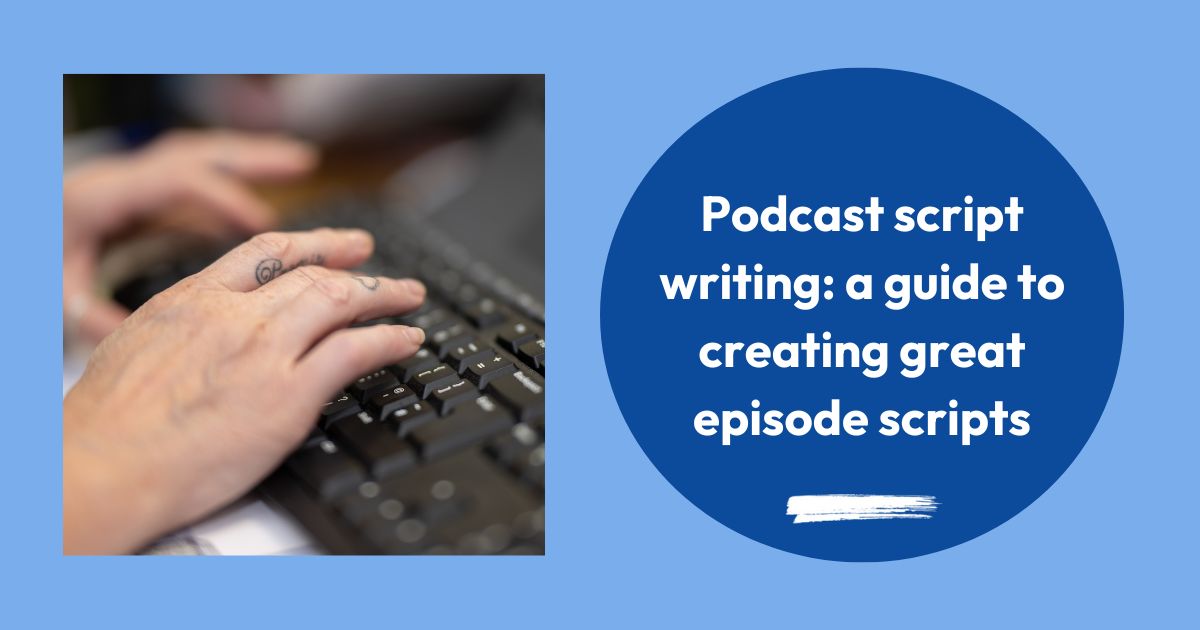
A good podcast script is not about sounding perfect—it is about sounding natural, prepared, and consistent. For creators using Podpage, a strong script does more than guide an episode: it powers accurate transcripts, useful show notes, and SEO-friendly episode pages that help listeners find and engage with your work.
Why use a podcast script
Listeners notice when a host is organized. A script helps us:
- reduce filler words and long pauses
- keep episodes on track and within time limits
- ensure important points are covered
- make editing faster and more predictable
- writing it can trigger more points by seeing everything laid out
When we add those scripts to Podpage, they also become the basis for transcripts and episode descriptions—reducing production work and improving discoverability.
Write like you talk
One common error is writing scripts that read like essays. We do not talk like we write, and we should not write like we talk—at least not when the goal is readability. Instead, we should aim to write for speech. That means:
- use contractions ("you’ll" rather than "you will")
- favor shorter sentences and conversational cadence
- include cues for natural pauses and emphasis—parenthetical notes or line breaks work well
- Use formatting like italics or bolding to show points or words you want to accent.
Scripting this way preserves authenticity while making episodes easier to record and edit. When we upload those conversational scripts into Podpage, auto-transcripts mirror the voice listeners hear—improving accessibility and search relevance.
Balance structure with flexibility
A script should guide the episode without constraining the conversation. We recommend a hybrid model:
- Outline: section headings, time targets, and transition notes
- Key lines: exact wording for important quotes, statistics, or calls to action
- Bulleted prompts: flexible talking points for organic discussion
This approach keeps episodes coherent while allowing hosts and guests to respond naturally. Podpage works well with this format—outlines and bullets can be copied into episode notes, and key lines can be highlighted as episode highlights on your site.
Use scripts to streamline your workflow
We treat scripts as production tools. They can:
- be shared with co-hosts and guests before recording
- include time estimates that speed up editing
- identify quotable moments for social posts and newsletters
When we upload an episode to Podpage, pulling content from the script reduces the time needed to create show notes, social copy, and transcript-ready content.
Turn scripts into better podcast websites
Podpage helps us transform scripts into assets that grow our audience:
- Automatic transcripts: improve accessibility and indexability
- Detailed show notes: provide context for new listeners and help search engines understand episode content
- Episode highlights: surface memorable lines and jump-to moments for visitors
Publishing scripts or transcript excerpts on your Podpage site also increases the content available to search engines—making it easier for new listeners to discover your podcast.
Practical script template
We recommend a simple, repeatable template. Use it as a starting point and tailor it to your show. Here is a quick video showing you how you can add and edit a transcript in Podpage.
Final thoughts
A podcast script should help you sound like yourself—clear, confident, and conversational. By writing for speech, keeping structure flexible, and using scripts as production assets, we make episodes that connect with listeners and scale our workflow. Keep in mind it may take practice to read this without sounding like you're reading. When those scripts feed into Podpage, they become the backbone of a professional, discoverable podcast website.


